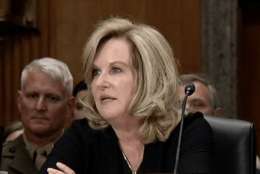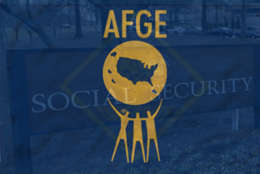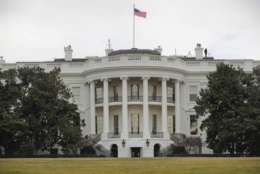official time
-
An online database of nearly 800 agency collective bargaining agreements is now live on the Office of Personnel Management's website. The creation of a common, public CBA system was a requirement of the president's 2018 workforce executive orders.
January 09, 2020 -
Amid pressure from lawmakers and a bad-faith ruling from the Federal Labor Relations Authority, the American Federation of Government Employees and Environmental Protection Agency have agreed to return to the bargaining table.
December 05, 2019 -
Agencies and federal employee unions at last have more guidance on how to implement the all provisions of the president's workforce executive orders.
November 26, 2019 -
Federal employee unions have until Jan. 10 to inform the Department of Veterans Affairs whether they would stay and pay rent or leave their currently occupied, government-owned VA office space. The president's 2018 workforce executive orders require unions to pay rent in order to continue using agency property.
November 15, 2019 -
The Trump administration has clarified how agencies should proceed with current, ongoing collective bargaining negotiations with federal employee union, now that the president's workforce executive orders are in full force.
October 11, 2019 -
After determining the Department of Health and Human Services bargained in "bad faith" with the National Treasury Employees Union, an independent arbitrator has directed both parties to return to the collective bargaining table. HHS, however, can appeal the arbitrator's decision.
October 07, 2019 -
The Office of Personnel Management on Friday instructed agencies to begin implementing the president's workforce executive orders on official time, collective bargaining and employee removals.
October 04, 2019 -
A new collective bargaining agreement between the Social Security Administration and the American Federation of Government Employees gives the union a smaller bank of official time hours than it had before, but more than representatives would see under the president's workforce executive orders.
October 03, 2019 -
The injunction on the president's workforce executive orders has expired, clearing the way for agencies to officially begin implementing them again.
October 02, 2019 -
Executive orders on federal employment, and vigorous union opposition to them, appear to have poisoned relations between federal unions and the Trump administration beyond antidote.
October 02, 2019 -
The U.S. Court of Appeals for the District of Columbia on Wednesday denied unions a chance to rehear their case against the president's workforce executive orders before a full panel of judges.
September 25, 2019 -
New regulations from the Office of Personnel Management implement portions of the president's May 2018 executive order on firings and disciplinary actions for federal employees.
September 16, 2019 -
An American Federation of Government Employees local is suing the Trump administration, the Social Security Administration and the Federal Service Impasses Panel for violating an injunction on the president's workforce executive orders.
September 05, 2019 -
The legal battle over the president's workforce executive orders continues, after federal employee unions on Friday asked the full U.S. Court of Appeals for the D.C. Circuit to hear their case.
August 30, 2019 -
The American Federation of Government Employees has sued the Federal Service Impasses Panel over its decision to rewrite major portions of the unions' contract with the Social Security Administration. If AFGE is successful, the case could have significant implications for other federal employee unions engaged in agency negotiations.
August 19, 2019














